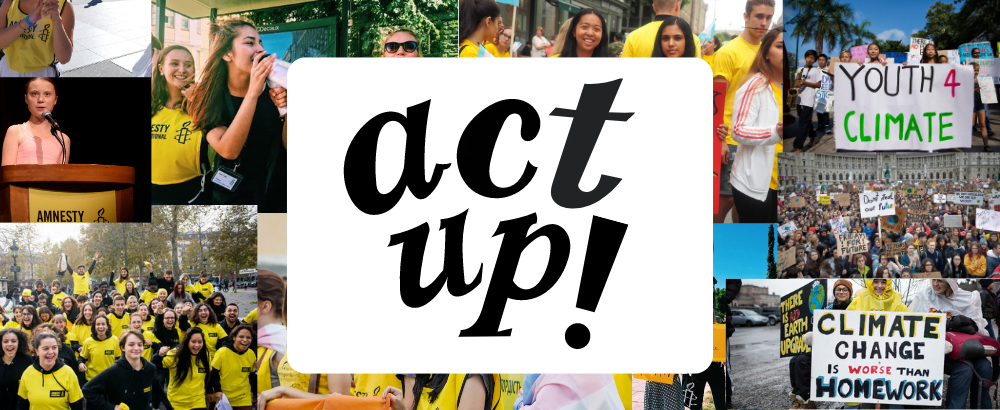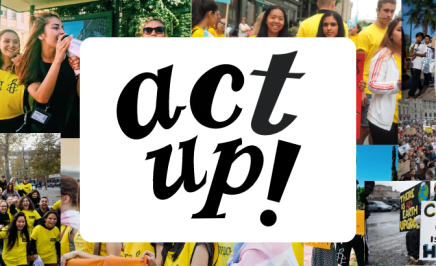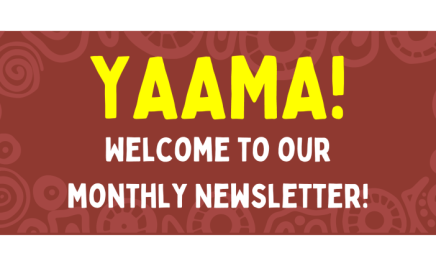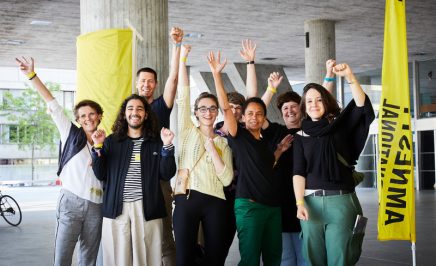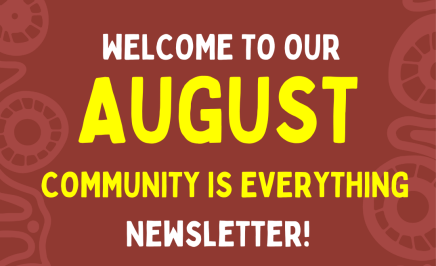Edition 2 | July 2024

Hey fellow activists!
The team and I are all so excited for you to see this new and latest edition of our Act Up! Empowering Youth in Action Newsletter.
In this week’s edition, we all had an opportunity to collaborate to bring together an edition showing Climate Justice history within Australia, a reflective piece about human rights interrelated with Climate Change and much more exciting information for you all to enjoy!
Climate change has been a cause of concern for many years for young people and in honour of Climate change news globally, this newsletter honours this. We also acknowledge the indigenous practices and culture that nurture the earth and protect against the Climate crisis.
This edition also features a piece from a young activist who is involved in the student encampments for Gaza at the University of Queensland. She reflects on the power of the encampments and the learnings she and other students have gained from this powerful form of protest they have organised!
Again please, let us know if you have an idea for the newsletter or want to add something to it to share with others. As you are all Youth Members, this newsletter is for you, so please get involved in whatever way you’d like. If you have a question, feedback, general inquiry, send us a message through the form below!
We hope you enjoy this edition! We look forward to hearing from you all!
In Solidarity,
Your Working Group


Learn about what other young people are up to, what they have to say and what they care about in the Amnesty Movement!
Climate Rights are Human Rights: Youth in Climate
Written by Asha Burr (Amnesty Youth Member and interim YAG Rep)
Are climate rights human rights? The clear answer is yes and this is something I was able to understand through my experience in Sydney recently at Climate Action Week events and talks. Climate justice is the term I prefer to use when talking about this issue as it brings to light the impact of Climate change on individuals. During Climate Action Week, the first event I went to was the LCOY (Australian Local Conference of Youth) held in the Town hall where I was allowed to collaborate with other young people to create a National Child and Youth statement to be given to the Australian government and the United Nations. This allowed me to bring my youth voice to the surface to make something tangible to give to change and policymakers to recognise the significance and impact that Climate justice has on young people and our futures.
Climate rights mean to me that young people have breathable air and access to our natural resources, everyone to have affordable access to public transport, and to respect and protect Indigenous connections to the land through renewability and revival and resolving inequalities within the climate space. Climate justice and climate rights can be achieved through the continuous aim to protect human rights and the most vulnerable within our communities through mobilisation and action in the climate justice space. Youth voices amplified are imperative to creating climate justice as I have come to understand through my experience in the Climate space. Indigenous and native knowledge of our diverse biosphere is also critical in our understanding and movement towards achieving Climate justice and co-existence as well as balance within our environment. Religion is also a valuable contribution to individual understanding and knowledge of how to care for and protect nature to stop Climate change, which is apparent for many young people.
Furthermore, when looking at Climate change, human rights issues seem to always come up as a cause of concern, from Indigenous peoples to the poorer in our world, those who live in natural disaster zones and countries and young people of the future and now. Human rights is evidently linked as a rising concern for modern times when we look at the aim of achieving Climate Justice. As a young person, struggling with this impending stress and anxiety around the Climate movement as it can be overwhelming and daunting. Having support and an outlet as a young person for climate rights is highly important if young people continue to be at the forefront of the movement, attempting to change the political narrative around Climate justice.
I call on the young people reading this to take action when action is needed as this issue is a Human rights one at its very core. Climate justice cannot be achieved until we protect human rights globally.
From Stockholm to School Strikes: A History of Climate Activism
Written by Thomas Coorey (Amnesty Youth Member)
The year is 1972. The Vietnam War rages, Don Mclean’s American Pie dominates the charts, and Gough Whitlam has just been elected as Prime Minister.
But perhaps more importantly, United Nations delegates convened in Stockholm for the first Earth Summit. Now, this conference was by no means perfect. The Soviet Union and Warsaw Pact did not attend due to disputes over East Germany. The United States and Western Europe tried to obstruct the resolutions. Newly decolonised nations were more concerned with economic stability and anti-colonial policies than climate action. However, the fruits of Stockholm are undeniable. Whilst not amazingly productive, this summit was the first time in human history that threats to the environment were seriously considered on a truly global scale.
However, as we all know, the climate crisis wasn’t solved in 1972. That’s where activists come in. Out of the budding internationalism of the 70s and 80s grew the first grassroots climate movements. Organisations such as the Friends of Earth and Greenpeace formed, elevating environmentalism in the social consciousness. Through a combination of advocacy, protesting, and direct action, ordinary people developed an increasingly significant voice on issues of climate and the environment. These groups formed coalitions, bringing the voices of ordinary people to the world stage. By the third Earth Summit in 1992, over 1500 non-governmental organisations were in attendance. At that summit in Rio de Janeiro, the Rio Declaration – advancing countries’ environmental rights and establishing their responsibilities – was passed unanimously.
This is a testament to the role of ordinary people in motivating governments to action; over 20 years, the narratives on climate policy shifted from being non-existent to a cornerstone of the international order. And it didn’t stop there. The Kyoto Protocol and Paris Agreement defined visions of a future where climate action was taken. A 2009 Climate Conference in Copenhagen was heralded by mass demonstrations both in Denmark and around the world. The School Strikes for Climate held governments accountable to their climate commitments and to future generations. People made these changes, and they still do.
It’s easy to sit back and imagine that these advances will be enough, but it’s all but certain more will be needed. The story of climate activism could have ended in Stockholm on a June morning in 1972, but it didn’t. It could have lost steam with a couple of fringe groups in the 80s, but it didn’t. It could have even come to a halt after the Paris Agreement set concrete emissions targets, but it didn’t.
Why? Because ordinary people stood up and made their voices heard.
Let’s make sure we raise ours.
The Student Intifada: A Vindication of Campus Activism
Written by Pantea Safa (Organiser of Students4Palestine at University of Queensland)
A political movement that hopes to change anything must be cultivated. It does not just erupt. It is weeks of organising meetings. It is a discussion, a pamphlet passing between hands. It is a series of protests, strikes and disruptions. The solidarity encampment at the University of Queensland was not the beginning of student activism for Palestine and it will not be the end of it. What the students at Columbia University did when they set up the first tents on their campus lawn was to fan the flame of student radicalism, to give momentum to our movement in Meanjin and, importantly, the student movement throughout the world. The Gazans called it the Student Intifada.

Half-jokingly, some have referred to the encampment as an “activist bootcamp”. For weeks on end, tens of us students would spend every day running stalls, handing out pamphlets, talking to passers-by about politics, painting banners, putting up posters and making announcements on cafeteria tables. During the first week alone, we held four protests. We had to organise speakers or speak ourselves. We had to learn to lead chants, to give speeches off-the-cuff. Throughout, we also held teach-ins, film screenings and reading groups.

Our encampment sat in the heart of campus, a beating reminder of the genocide in Gaza. At this time, I would often overhear Palestine in conversations: on the bus, in my classes, in the library, in the campus café. The campus was undergoing a new period of politicisation.

This politicisation came to a peak at the Student General Meeting where we called on students to vote for the university to divest from Israel. For the vote to be valid, we needed at least 300 people to attend. On the night, 2000 students came out. After a semester of activism, the student body was convinced that weapons companies had no place on campus, that their university’s complicity in genocide was reprehensible and that all ties to Israel had to be cut. The significance of this cannot be understated. These students voted to fight for Palestine.

Students for Palestine is calling our third high school and university Student Strike for Palestine on July 25th, 1pm at King George Square. Skip your classes and join us as we take our fight to the streets of Brisbane.

Find out what’s happening soon at Amnesty!
TWO NEW episodes of ‘Anytime, Amnesty’ Podcast!
Episode 3 discusses the rights of women and children in conflict zones with activist-scholar Professor Bina D’Costa of the Australian National University. Episode 4 is a frank and open discussion with Melak, an activist in Adelaide who is part of a university encampment standing in solidarity with the people of Gaza.
Firestick Flicks NAIDOC Film Screening of “The Dark Emu Story”
Thursday, 11th May @ 5:30pm AEST
The Indigenous Rights team at Amnesty are launching a new initiative – Firestick Flicks – a monthly film club. To kick off this initiative, we are planning a soft launch event with a special in-person screening of the first film, The Dark Emu Story, during NAIDOC Week at the Gadigal and Naarm Action Centres (FREE, but registration required!).
Join Amnesty’s Book Club!
First Session: Sunday, 28th July @ 8pm AEDT
Led by Mohammed, the founder of Sweatshop, we will meet online, on Zoom, every two months to discuss the books we read and to get to know these fantastic young people with diverse backgrounds and interesting stories to tell. It doesn’t matter where you are joining from across Australia, this Book Club is for you!

What else can you expect from the Act Up! newsletter?
As a Working Group, we are committed to publishing an edition of Act Up! once a month.
Going forward, here is what you can expect from this newsletter:
- Sharing any UPCOMING OPPORTUNITIES for fun & exciting things that are happening in the movement (i.e. Youth Action spaces, campaign events, rallies/protests, training workshops, Members Forums etc.)!
- YOUTH ACTIVIST SPOTLIGHTS where we will highlight the personal activism stories of youth activists in our movement. Every story is important and valuable so get in touch if you want to share your story!
- Sharing what young people are doing within Amnesty, in their local communities, schools, universities or at Amnesty events in our YOUTH ON THE MOVE section! Get in touch if you have been doing some cool things!
- GET IN CONTACT via the form below to have your say, share your piece or even join our working group!
We want YOU to get involved and share your experiences, stories and creative works in the human rights activism and advocacy space through the Act Up! Youth Newsletter.
Thank you for being comfortable and confident enough to share what you and your community are doing for human rights. See you next month with our next edition!

